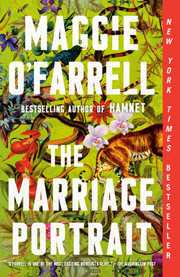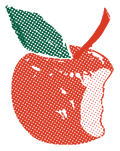A couple of weeks ago, Barbara Kingsolver was being celebrated for being the first person to win the Women’s Prize for fiction twice. Also on the shortlist was Maggie O’Farrell, who, if she had been finally selected, would also have been the first person to win the prize for the second time.
The Women’s Prize for Fiction has been celebrating female writers for over a quarter of a century, championing Helen Dunmore, Chimamanda Ngozi Adichie, Kate Grenville, Zadie Smith, Kamila Shamsie, Susanna Clarke… the list goes on. The prize inevitably thrusts these writers and their books to the fore of literary attention – Adichie’s Half of a Yellow Sun became not only a huge best-selling novel, but was made into a major film.
 Yet the writers are also doing pretty well without the prize. Maggie O’Farrell’s The Marriage Portrait had already sold nearly 73,000 copies by early June, the most of any of the books on the prize shortlist. (Read a review here)
Yet the writers are also doing pretty well without the prize. Maggie O’Farrell’s The Marriage Portrait had already sold nearly 73,000 copies by early June, the most of any of the books on the prize shortlist. (Read a review here)
There is also the question of whether a Women’s Prize for Fiction is still necessary. When the award was created, attention was firmly focused on male writers, the likes of Jonathan Franzen, Jeffrey Eugenides, Alan Hollinghurst, Hanif Kureishi, Will Self. But as we commented on 21 April, the latest Granta list of exciting new writers is dominated by women, and the New Statesman heralded ‘the decline of the literary bloke’. So isn’t it now somewhat patronising to have a special prize reserved for women, since they now outwrite and outsell men? That is certainly the view of Martha Gill, in her thought-provoking article, and here is alternative view from Claire Allfree.
 Yet the Virago publishing house would disagree. The feminist publisher is celebrating its 50th birthday and Rosie Boycott, one of the founders, says that there is ‘still a whole world of people who do not want women to succeed, or to be equal. And quite honestly, while that is true, you need Virago.’ If she is right, then you still need the Women’s Prize for Fiction too.
Yet the Virago publishing house would disagree. The feminist publisher is celebrating its 50th birthday and Rosie Boycott, one of the founders, says that there is ‘still a whole world of people who do not want women to succeed, or to be equal. And quite honestly, while that is true, you need Virago.’ If she is right, then you still need the Women’s Prize for Fiction too.
The Virago Classics range, set up to provide a clear route to allow women’s voices to be heard and their works read, rescued early 20th century writers who might otherwise have been forgotten. Now publishing contemporary writers too, Virago boasts over 4000 titles, with books by Sarah Waters, Monica Ali, Grace Nichols, Angela Carter among 1000 other writers.
Read an article about Virago here, and here is the publisher’s website.